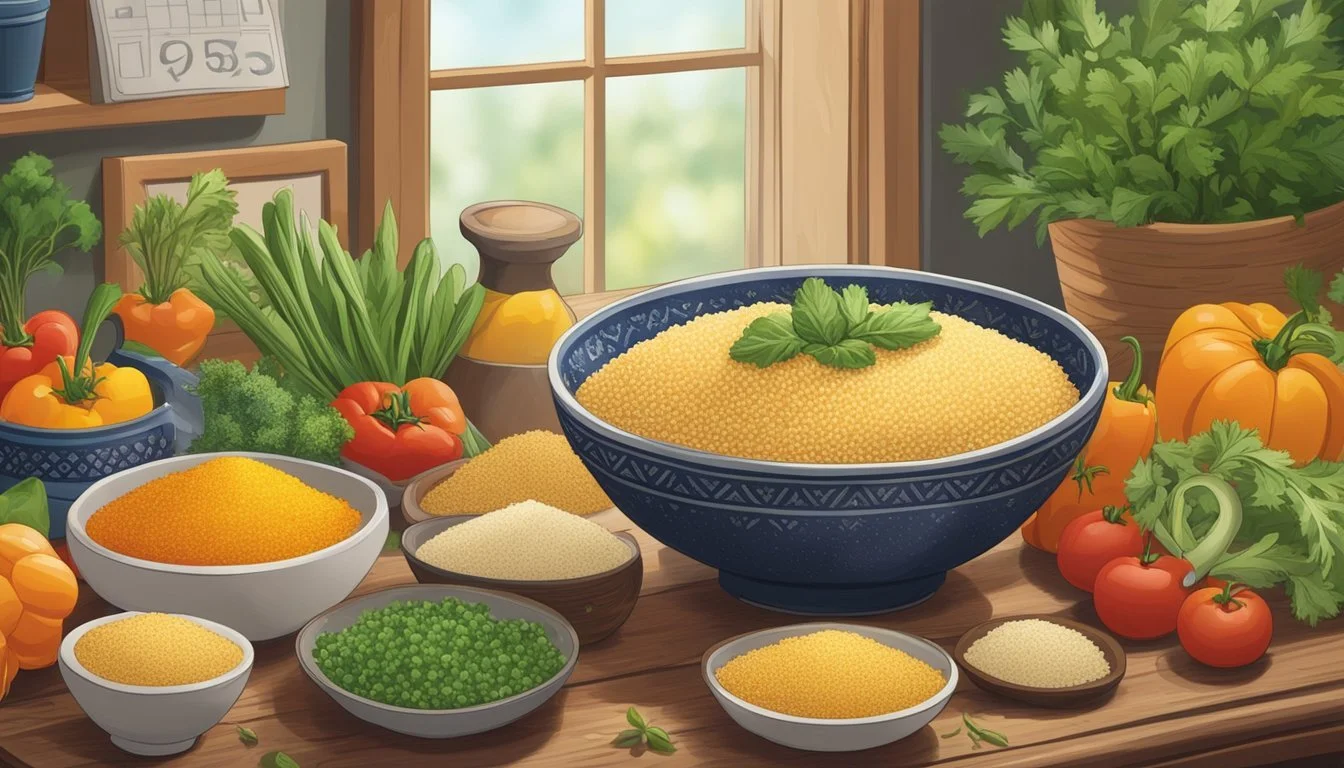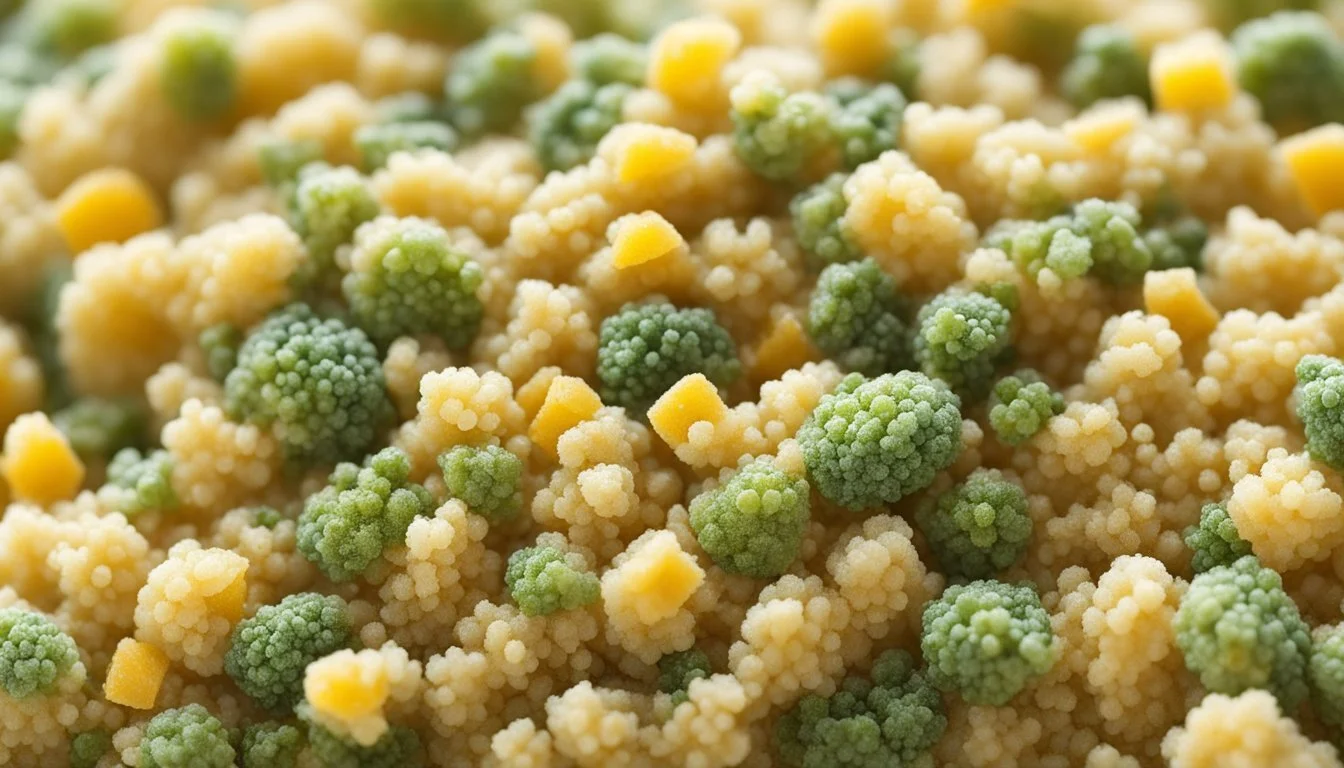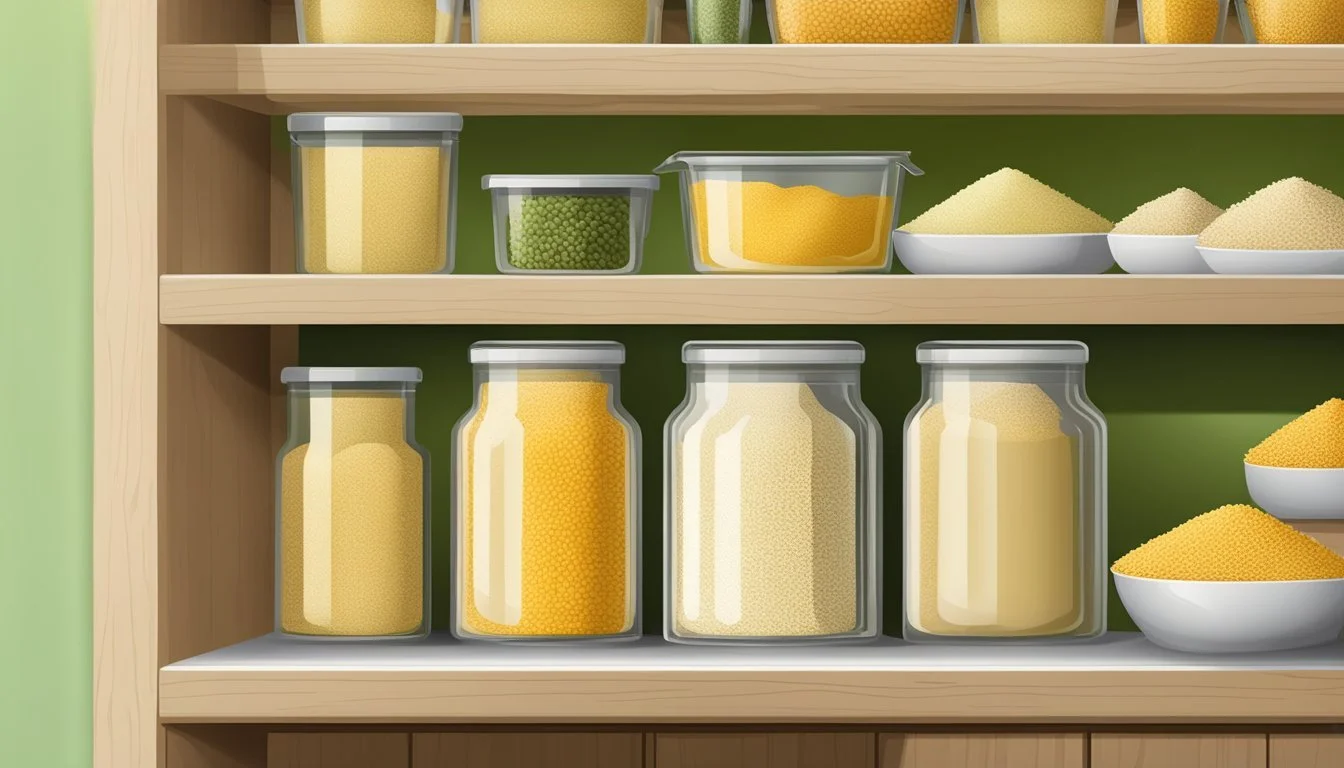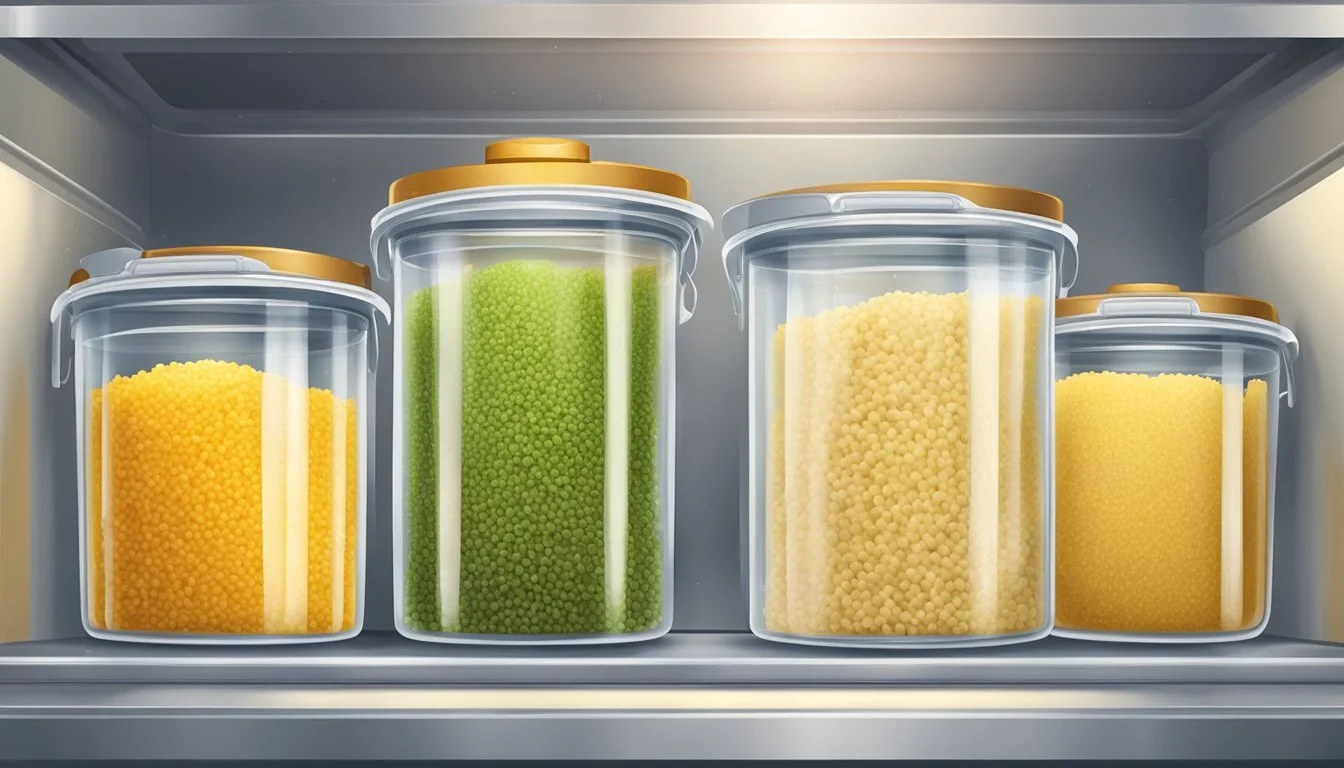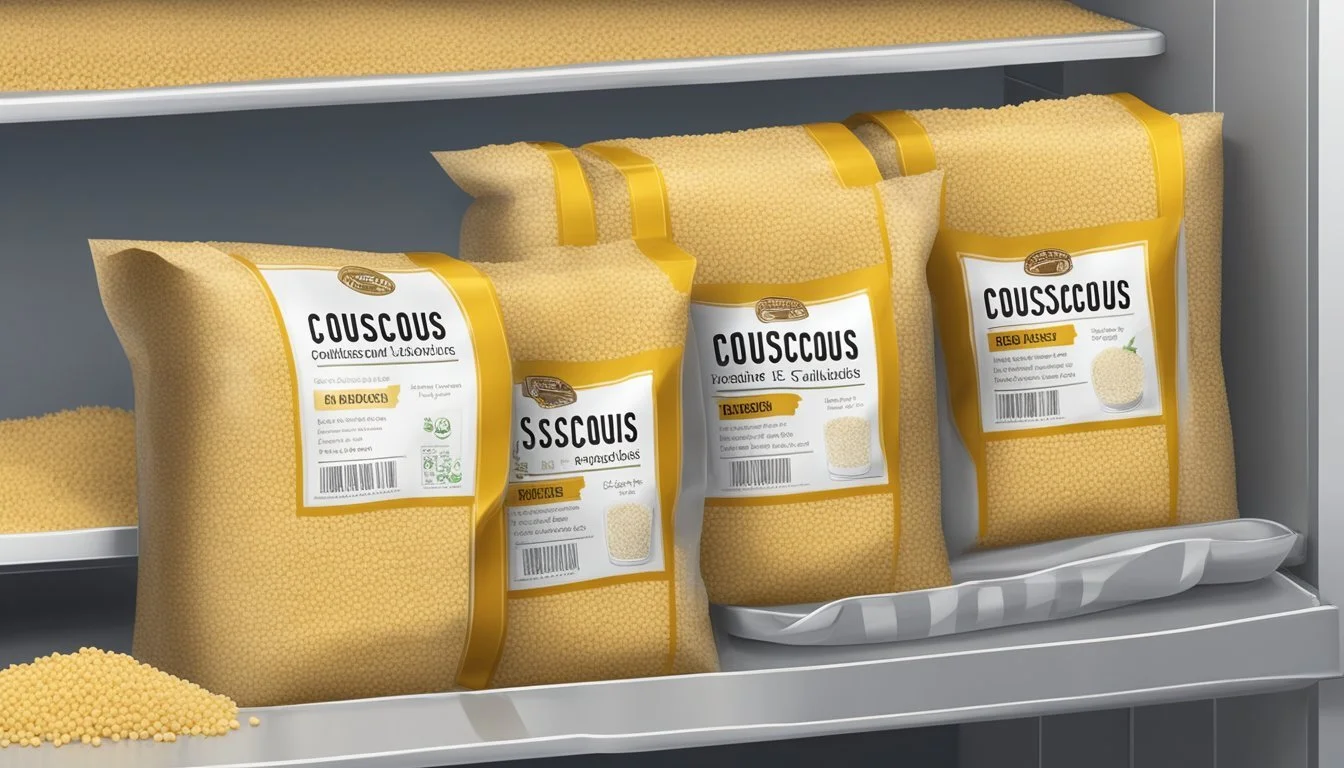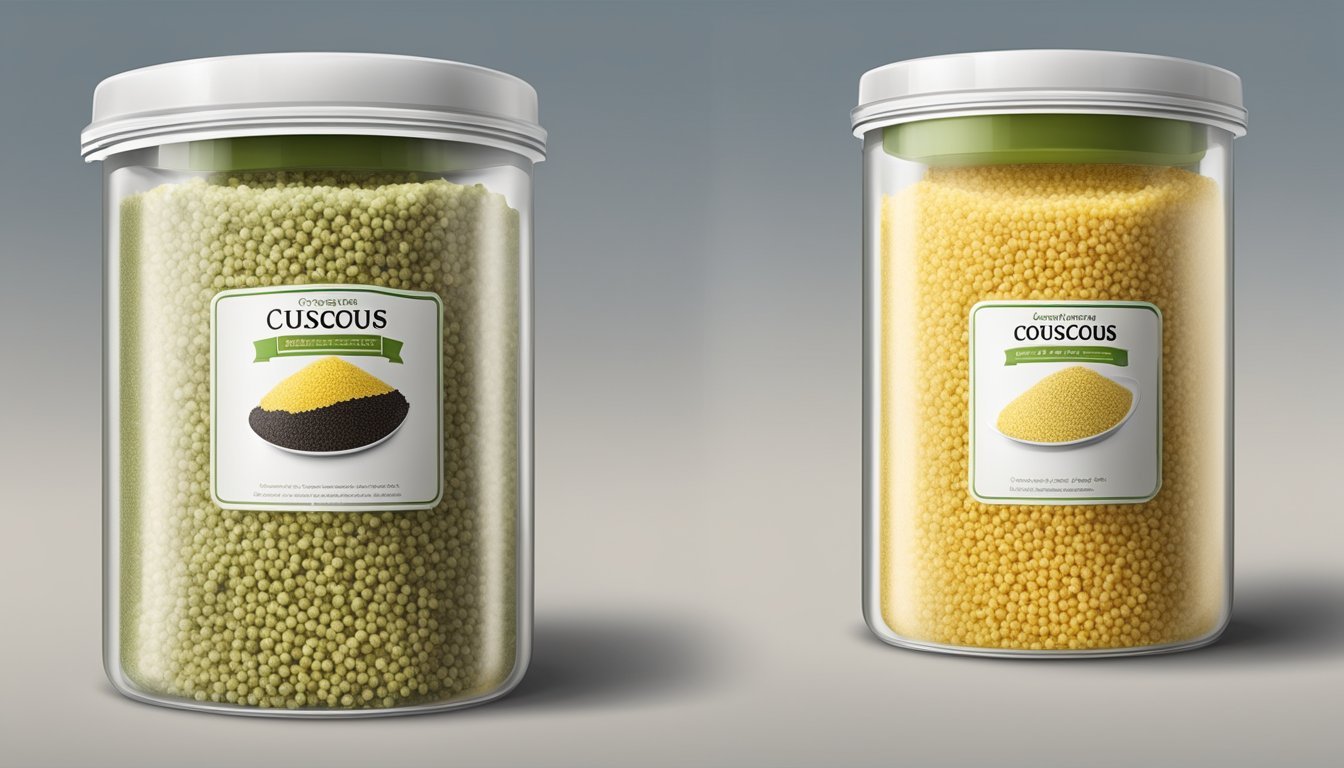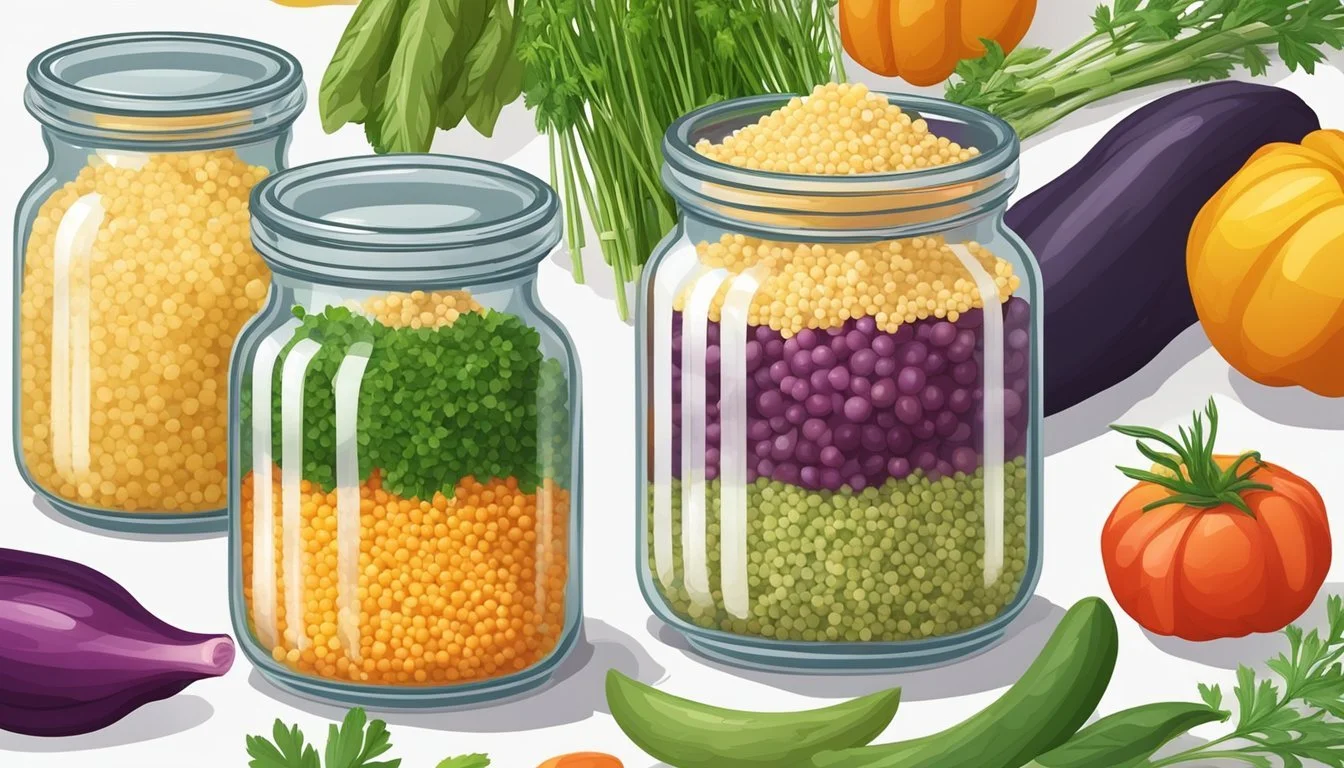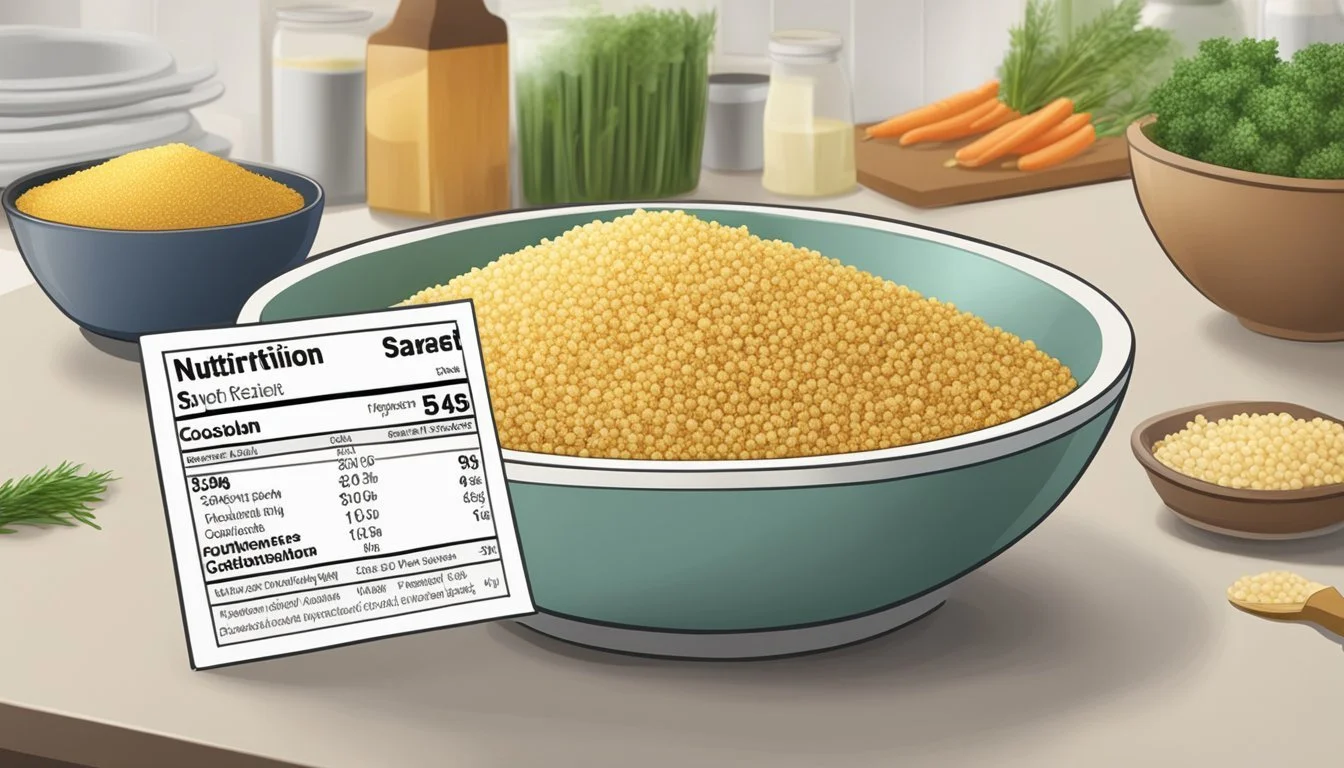Does Couscous Go Bad?
Shelf Life and Storage Tips
Couscous, a staple in many kitchens worldwide, is known for its versatility and ease of preparation. But like all food items, it has a shelf life. Yes, couscous can go bad if not stored properly. Proper storage is essential to maintain its quality and extend its usability.
Uncooked couscous, when stored in a cool, dry place in an airtight container, can last for up to two years. For the best quality, it is recommended to use it within a year. Cooked couscous, on the other hand, should be stored in the refrigerator, where it remains fresh for three to five days. Freezing cooked couscous can further extend its shelf life to three or four months.
Ensuring the correct storage of couscous not only maximizes its shelf life but also helps in preserving its texture and flavor. Whether you keep it in the pantry or the fridge, the key is to protect it from moisture and contaminants. This simple precaution can make a significant difference in the longevity and enjoyment of this beloved grain.
What Is Couscous?
Couscous is a type of pasta made from semolina, a coarse flour often derived from durum wheat.
Originating from North Africa, it holds a cultural significance, especially among Berber communities.
There are various types of couscous, each with unique characteristics.
Types of Couscous:
Moroccan Couscous: The smallest and most commonly found. Cooks quickly, often in just a few minutes.
Israeli (Pearl) Couscous: Larger, pearl-sized grains. Has a slightly chewy texture.
Lebanese (Moghrabieh) Couscous: The largest variety, with a robust texture.
Nutritional Content (per 1 cup cooked):
Nutrient Value Calories 176 Carbohydrates 36.5 grams Protein 5.9 grams
Couscous is incredibly versatile and can be used in salads, stews, and as an accompaniment to various dishes. Given its mild flavor, it absorbs other flavors well.
Available as instant couscous, it offers quick preparation, making it a convenient pantry staple.
Whether used in traditional North African dishes or modern recipes, couscous continues to be a favorite for its ease of use and adaptability.
Signs of Spoilage in Couscous
Identifying spoilage in couscous can prevent foodborne illnesses and ensure a safe eating experience. This section breaks down the key indicators to look out for.
Visual Indicators
Visual signs are the most immediate way to detect spoilage in couscous. Check for mold or discoloration. Fresh couscous should have a consistent color, typically a light ivory or pale yellow.
Dark spots or patches can indicate mold growth. Discoloration might also suggest exposure to moisture or contamination. Always inspect the couscous closely.
Presence of insects or debris can also indicate that the couscous is no longer safe to eat.
Keep couscous in a cool, dry place to help maintain its visual quality.
Changes in Smell
The smell of couscous is another critical indicator of its freshness. Fresh couscous has a subtle, nutty aroma. If it has an off smell, such as a sour or musty odor, it likely indicates spoilage.
A rancid smell is another red flag, pointing to improper storage or age. Even if no visual signs are present, an unpleasant smell can be a clear sign that the couscous is not safe.
Frequent sniff-tests can be an easy and effective way to check your couscous.
Altered Texture and Taste
Texture changes can also signal spoiled couscous. Fresh couscous is dry and granular. If it feels clumpy or moist, it may have absorbed moisture and is thus at risk.
Taste is a final checkpoint. Fresh couscous has a slightly nutty, neutral taste. If it tastes stale, sour, or otherwise off, it should not be consumed.
These textural and taste changes can be subtle but are crucial for identifying spoiled couscous before it leads to food poisoning.
Proper storage is key to preserving both texture and taste.
Proper Storage for Uncooked Couscous
To ensure the longevity and quality of uncooked couscous, it is crucial to store it under specific conditions and in appropriate containers. Proper storage can extend its shelf life up to two years.
Ideal Conditions
Uncooked couscous should be stored in a cool, dry place. This helps maintain its freshness and prevent spoilage. The pantry or a cupboard is an ideal location. It is important to keep couscous away from humidity and heat sources, as these can degrade its quality.
Temperature fluctuations should be minimized. Ideally, the storage area should be consistently cool. Exposure to moisture can cause the couscous to clump and develop mold, making it unsafe to consume.
Container Recommendations
Using an airtight container is crucial for preserving the quality of uncooked couscous. This prevents exposure to air and humidity, which can lead to spoilage. Glass jars with tight-sealing lids, or high-quality plastic containers with secure closures, are excellent choices.
Original Packaging: If you plan to leave the couscous in its original packaging, ensure it is well-sealed after each use.
Airtight Containers: Transferring the couscous to a dedicated airtight container can provide additional protection and is often more effective than relying on original packaging alone.
Properly sealed containers help keep out pests, such as pantry moths and insects, which might otherwise infest the couscous.
Storing Cooked Couscous
Storing cooked couscous properly ensures it remains safe to eat and retains its quality. Focus on proper refrigeration, effective freezing methods, and suitable reheating guidelines.
Refrigeration
For optimal freshness, cooked couscous should be cooled and placed in an airtight container. Labeling the container with the storage date helps track its shelf life.
Keep the couscous in the refrigerator at 40°F (4°C) or below. Stored this way, couscous typically stays fresh for 3 to 5 days. Make sure the container is sealed tightly, preventing exposure to air and moisture.
Avoid storing cooked couscous in the fridge door; place it on a middle shelf where the temperature is more consistent.
Freezing
Freezing cooked couscous extends its storage life significantly. To freeze, spread the couscous on a baking sheet to cool completely and then transfer it into a freezer-safe, airtight container or resealable freezer bag.
Label the packaging with the date to keep track of its age. For best quality, frozen couscous should be consumed within 3 months. Ensure the packaging is sealed well to prevent freezer burn, which can affect the taste and texture.
Reheating Guidelines
Reheating leftover couscous can be done using a microwave or on the stovetop. When reheating in the microwave, place the couscous in a microwave-safe dish, add a splash of water, cover it, and heat on high for 1-2 minutes. Stir midway to ensure even heating.
For stovetop reheating, place the couscous in a pan with a little water or broth and heat on medium until warmed through. Stir frequently to avoid sticking and ensure even heating. Avoid reheating more than once to maintain the best possible quality.
Couscous Shelf Life and Expiration
Couscous is known for its long shelf life if stored correctly. Understanding the difference between shelf life, expiration date, and quality of couscous ensures it remains safe and tastes its best.
Determining Shelf Life
Uncooked couscous can last up to two years when stored in a cool, dry place, such as a pantry. The key to maintaining its longevity is using an airtight container to prevent moisture and contaminants.
Cooked couscous has a significantly shorter shelf life. In the refrigerator, it lasts 3-5 days. For longer storage, couscous can be frozen for up to one month. To avoid spoilage, always check for changes in color, texture, or odor. A musty smell or visible mold indicates that couscous should not be consumed.
Expiration Date vs. Quality
While couscous may still be safe to eat after the expiration date, quality can deteriorate. The expiration date suggests the period during which the product is at its best texture and flavor. Post-expiration, couscous may become stale or lose some nutritional value.
Signs of diminished quality include hardened texture or a bland taste. Always inspect couscous before cooking to ensure it retains its best quality. Using within the recommended timeframes helps preserve its intended flavor and texture.
Storage Time Guide:
Couscous Type Pantry (Uncooked) Fridge (Cooked) Freezer (Cooked) Storage Time Up to 2 years 3-5 days Up to 1 month
Proper storage is essential to maintain couscous’s prolonged shelf life and quality.
Preventing Contamination and Pests
Proper storage of couscous is essential to keep it free from contamination and pests. Ensuring the grains remain dry and in a sealed environment will enhance their shelf life and maintain their quality.
Protecting Against Insects
Insects and pantry bugs can quickly infest improperly stored couscous. To protect against this, store couscous in an airtight container. Using containers made of glass, metal, or high-quality plastic is recommended.
Avoid storing couscous in its original packaging once opened, as it is more susceptible to holes and tears. Instead, transferring it to a sealed container will prevent insects and pests like moths and weevils from accessing the grains.
Labeling the container with the purchase date helps maintain a rotation system, reducing the chance of long-term exposure. Position the container in a cool, dry place, away from direct sunlight, which can increase the temperature and attract moisture, potentially leading to infestation or spoilage.
Food Safety Practices
Maintaining food safety practices ensures couscous remains free from bacteria and mold. Always use clean utensils and hands when handling couscous to avoid cross-contamination.
Cooked couscous should be refrigerated promptly. Store it in a sealed container and consume within 3 to 5 days to maintain quality and safety. For best results, avoiding storing in plastic bags exposed to air is essential as they are less effective in keeping out moisture and pests compared to airtight containers.
Moisture is a significant risk factor; it can introduce bacteria that spoil food. Ensure that the storage area is dry and periodically check for any signs of leaks or humidity.
Utilizing Couscous in Recipes
Couscous is a versatile ingredient that can be used in numerous recipes. Its ability to absorb flavors makes it ideal for both side dishes and main meals.
Versatile Applications
Couscous can be effortlessly integrated into various dishes. It serves as an excellent alternative to rice and can be used in salads, stews, and soups. In salads, couscous pairs well with a combination of fresh vegetables such as cucumbers, tomatoes, and bell peppers.
In stews, couscous can be added towards the end of cooking to soak up the rich flavors. This ingredient is also a great choice for stuffing vegetables like bell peppers or tomatoes. Since couscous can be easily rehydrated, it's useful for quick recipes and last-minute meal preparations.
Recommended Pairings
Couscous complements a wide range of flavors and dishes. For a basic flavor enhancement, it’s often cooked in broth rather than water, helping it infuse more taste into the dish. It pairs well with grilled meats, such as chicken or lamb, and provides a balanced side dish.
Flavored couscous, such as those infused with spices or herbs, can elevate a simple meal. Layering flavors with spices like cumin, coriander, or turmeric can create a more complex dish. Adding fruits and nuts, such as raisins and almonds, can provide a sweet and crunchy texture.
Whether used in simple or complex dishes, couscous shows its versatility and adaptability.
Health and Nutritional Information
Couscous is a versatile and nutritious food often made from semolina flour, derived from durum wheat.
One serving of couscous (around 1 cup cooked) contains approximately 176 calories. It provides 36.5 grams of carbohydrates and 5.9 grams of protein, making it a good source of quick energy and essential for muscle repair.
Nutrient Content per Serving (1 Cup Cooked):
Nutrient Amount Calories 176 Carbohydrates 36.5g Protein 5.9g Fat 0.5g Fiber 2.2g Selenium 43 mcg
Couscous also contains important vitamins and minerals. Notably, it offers a healthy dose of selenium, a critical antioxidant that helps in protecting cells from damage. It meets over 60% of the daily recommended intake.
Vitamins and Minerals:
Niacin (B3): 6 mg
Vitamin B6: Small amounts
Folate: Contributes to DNA synthesis
Thiamin (B1): 0.3 mg
Manganese: 1.3 mg
Phosphorus: 294 mg
Iron: Contributes to oxygen transport
Magnesium: 76 mg
Potassium: Small amounts
Whole grain couscous offers additional benefits over the regular variety. It provides more fiber, which aids in digestion and helps maintain steady blood sugar levels.
Incorporating couscous into a balanced diet can contribute to overall nutrition, helping meet daily dietary requirements for several essential nutrients while offering a versatile base for various dishes.


